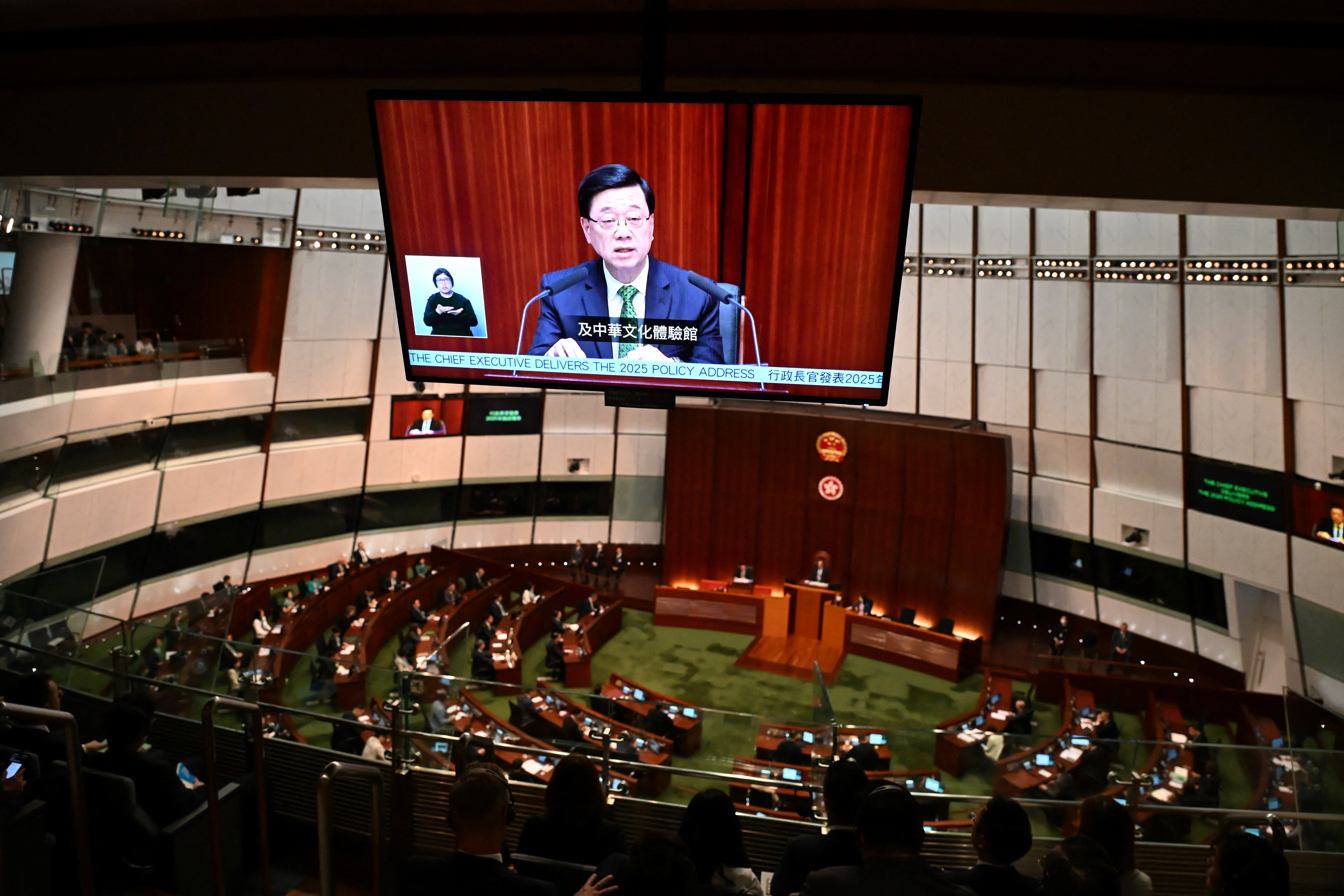Hong Kong’s top leader has pledged to continue with the city’s national security crackdown and punish actions that threaten national security.
In his fourth policy address covering his five-year term on Wednesday, Hong Kong’s chief executive John Lee Ka-chiu said that the former British colony has left its period of chaos and disorder, and moved further towards governance and prosperity.
The former security chief fulfilled Beijing’s long-standing imperative to enact a homegrown national security law last year. Officials said the law and a China-imposed security law were necessary for the city's stability following massive anti-government protests in 2019.
More than 1,900 people have been imprisoned on political charges since 2019, when Hong Kong witnessed a wave of massive pro-democracy protests and Beijing responded by introducing a draconian new national security law to throttle dissent.
“We will remain vigilant at all times, prevent and mitigate risks, and ensure the long-term stability and safety of Hong Kong,” the Hong Kong leader said in his annual policy blueprint, as he vowed his government’s resolve to continue to safeguard national sovereignty, security and development interests.

In order to prevent, suppress and punish acts that endanger national security, Mr Lee said the special administrative region’s government will continue to improve the legal system and enforcement mechanism.
“The government will spare no effort in promoting national security education,” he said.
The Hong Kong chief also said that more than 3,300 national security education district tutors have been trained to promote national security messages in the community.
Mr Lee is under pressure to distinguish Hong Kong from regional rivals and mainland Chinese metropolises after a years-long crackdown on democracy activism and Beijing's tightening grip tainted the city's image as a free-wheeling financial centre.
“My ultimate objective in governance is to improve people’s livelihood,” he said on Wednesday in a speech that was just six minutes shy of three hours.
“The well-being of our people is intertwined with the health of our economy. Economic growth is the foundation of improving livelihood.”
Mr Lee started delivering the fourth Policy Address at the legislative council at 11am local time on Wednesday.
Earlier this year in May, the Hong Kong administration fast-tracked the enactment of new legislation under its domestic security law to include a maximum of seven years of jail term for disclosing ongoing investigations by Beijing.
The new legislation appears to be enacted to consolidate Beijing's control over the financial hub, which has witnessed a steady clampdown on dissent.
The law came a year after Hong Kong enacted a new national security law, Article 23, that criminalises treason, sabotage, sedition, theft of state secrets and espionage with jail terms of up to life imprisonment.
Hong Kong has been widely criticised for weaponising legislation in the name of national security. The security laws have been used to jail scores of leading Hong Kong democrats, including Joshua Wong and high-profile political prisoners like Jimmy Lai, arrest critics of China and to shut down liberal media outlets and civil society groups.
Lai, a 77-year-old British national and founder of the now-shuttered Apple Daily, has been kept in solitary confinement for nearly four years over his role in supporting the 2019 pro-democracy movement, and is facing the prospect of life in prison if found guilty of sedition and collusion with foreign powers.
Last year, Sir Kir Starmer said he agreed that Lai’s arrest was a breach of the treaty governing Hong Kong’s handover from British to Chinese rule, and that securing his release was a “priority” for the government.
China’s ‘ghost particle’ machine could solve science’s greatest mysteries
World’s oldest human mummies were smoke-dried 10,000 years ago, new research shows
Parents ordered to pay £227,000 after drunk Chinese teenagers urinate in soup
Trump signals he may extend TikTok deadline again as US-China talks resume in Spain
China’s newest aircraft carrier Fujian sails through Taiwan Strait for first time
Hong Kong responds to damning report by denying it has any political prisoners at all







